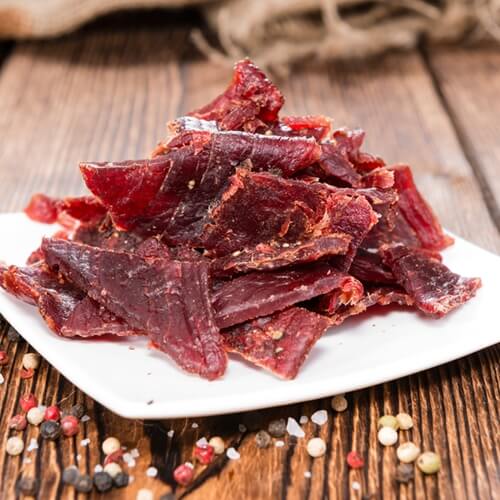A Guide To Homemade Jerky
Visit almost any convenience store across America and you’ll encounter beef jerky. Though it’s a favorite snack of many – consider how often you might have consumed it during a road trip – most store-bought jerky is high in sodium and saturated fat. For those who still have a hankering, you can make beef jerky that’s noticeably healthier right at home or during culinary academy. Just follow this guide:
Choose your meat
Despite that variety of meat’s overwhelming popularity, not all jerky is made from beef. Other common options include:
- Turkey
- Venison
- Pork
- Buffalo
- Chicken
If you are going to opt for beef, though, go for something with a better meat-to-fat ratio, like flank steak or a nice rib eye steak. Dehydrator Beef Jerky suggests a London broil: Not only is it somewhat inexpensive, up to $2 per pound depending on the butcher, but it’s an extra lean cut of meat.
A matter of marinade
No matter what cut of meat you end up choosing, you’re going to need the perfect marinade in order to truly make the most flavorful jerky. For his book “Emergency”, author Neil Strauss polled everyone from nature survivalists to professional chefs in order to discover that perfect marinade recipe. Following a lot of trial and error, he came up with a mix that includes the following:
- Soy sauce
- Onion powder
- Garlic powder
- Cayenne pepper
- Sesame seeds
- Brown sugar
- Worcestershire sauce
For the average cut of meat, usually around five pounds, you’ll want to use two cups of each powder and about three teaspoons of each sauce and/or sugar. Always be sure to marinade overnight, and anywhere from six to eight hours will yield the most flavorful meat strips.
The dehydration process
How you go about dehydrating the meat depends on a number of factors, including the cut itself and the size of the strips desired. As a rule, you’ll want to cut the meat into strips that are half an inch thick and about 6 inches long, Nesco noted. At this size, it should take anywhere from 4 to 15 hours to marinate, depending upon the dryer you use and the temperature setting (more heat means less drying time.) However, some cuts, especially game meat, require additional steps. In order to avoid the risk of salmonella, take the finished strips and heat them at 160 degrees Fahrenheit for an additional 30 minutes. Finally, always pat the jerky dry with a paper towel, as this will absorb any excess fat and add to the shelf life, which is usually three to four weeks.


